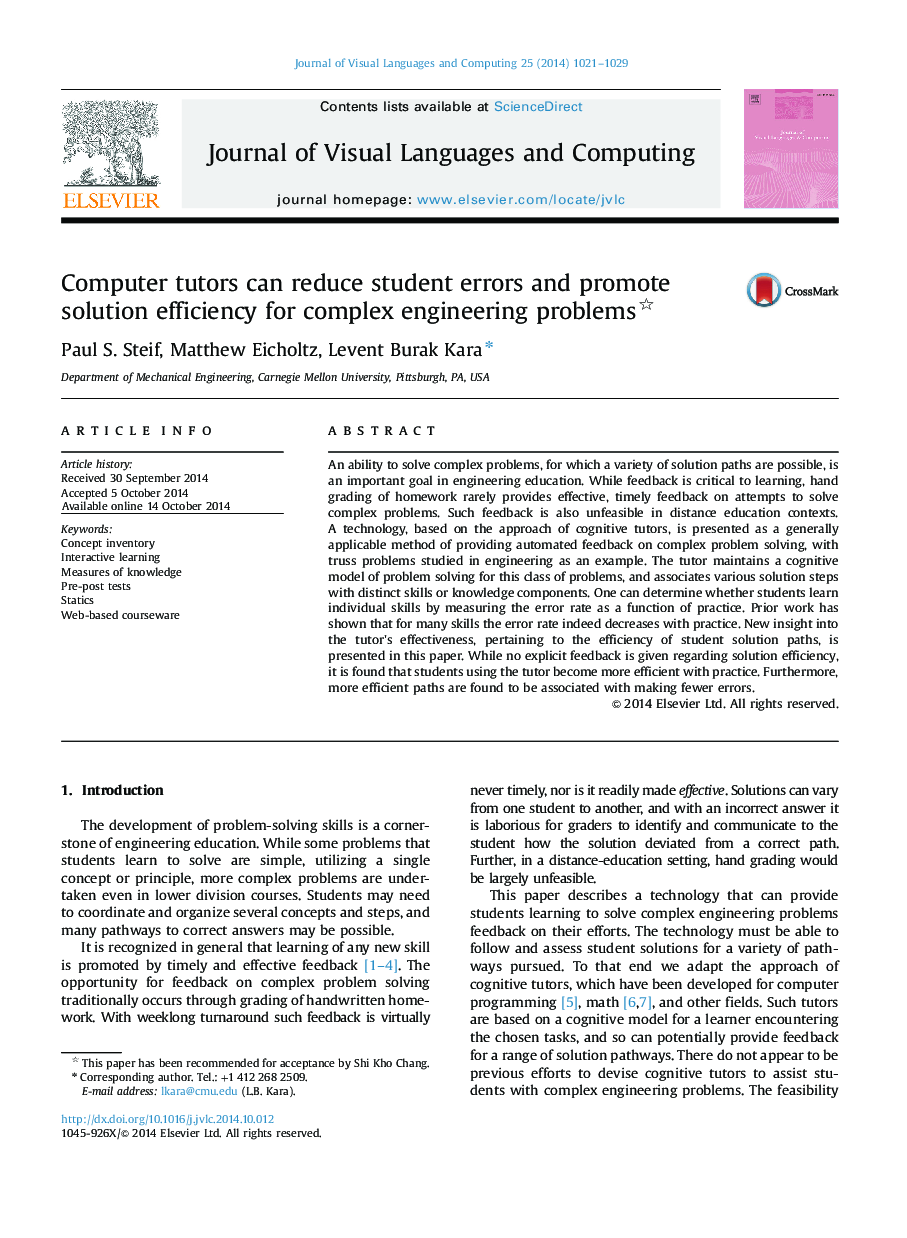| Article ID | Journal | Published Year | Pages | File Type |
|---|---|---|---|---|
| 10358815 | Journal of Visual Languages & Computing | 2014 | 9 Pages |
Abstract
An ability to solve complex problems, for which a variety of solution paths are possible, is an important goal in engineering education. While feedback is critical to learning, hand grading of homework rarely provides effective, timely feedback on attempts to solve complex problems. Such feedback is also unfeasible in distance education contexts. A technology, based on the approach of cognitive tutors, is presented as a generally applicable method of providing automated feedback on complex problem solving, with truss problems studied in engineering as an example. The tutor maintains a cognitive model of problem solving for this class of problems, and associates various solution steps with distinct skills or knowledge components. One can determine whether students learn individual skills by measuring the error rate as a function of practice. Prior work has shown that for many skills the error rate indeed decreases with practice. New insight into the tutor׳s effectiveness, pertaining to the efficiency of student solution paths, is presented in this paper. While no explicit feedback is given regarding solution efficiency, it is found that students using the tutor become more efficient with practice. Furthermore, more efficient paths are found to be associated with making fewer errors.
Keywords
Related Topics
Physical Sciences and Engineering
Computer Science
Computer Science Applications
Authors
Paul S. Steif, Matthew Eicholtz, Levent Burak Kara,
